#Firebase Development Services
Explore tagged Tumblr posts
Text
Firebase Development Services | Firebase App Development | VTNetzwelt
Firebase Development Services are essential for businesses looking to develop applications that are not only responsive and user-friendly but also highly functional, ensuring a competitive edge in the digital landscape. Firebase Development services cover the entire development cycle, from app conceptualization and design to coding, testing, and deployment. They use Firebase's features, such as real-time databases, authentication, cloud functions, and hosting, to create dynamic and feature-rich applications.
#Firebase App Development#Firebase Development Services#Firebase services#Firebase#Firebase real-time database#Firebase app indexing#Firebase+AdMob#Firebase remote configuration
0 notes
Text
Novus Logics offers a wide range of Firebase development services
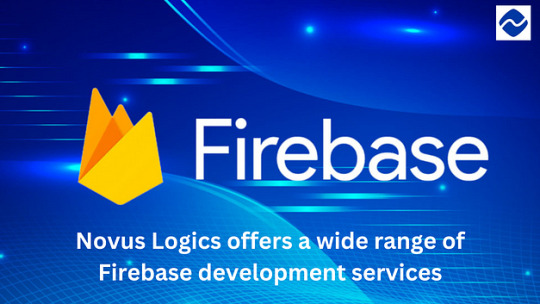
Firebase is a mobile and web application development platform that offers a suite of tools and services to help developers build high-quality apps, grow their user base, and earn more money. Novus Logics is a leading Firebase development company in India and the USA, with a team of experienced developers who can help you build the perfect app for your needs.
What is Firebase?
Firebase is a mobile and web application development platform that offers a suite of tools and services to help developers build high-quality apps, grow their user base, and earn more money. Firebase provides a wide range of features, including:
Real-time database: Firebase Realtime Database is a cloud-hosted database that allows developers to store and sync data across multiple devices in real time.
Authentication: Firebase Authentication provides developers with a simple and secure way to add authentication to their apps.
Analytics: Firebase Analytics provides developers with insights into how users are interacting with their apps.
Crashlytics: Firebase Crashlytics helps developers to identify and fix crashes in their apps.
Messaging: Firebase Cloud Messaging allows developers to send push notifications to their users.
Storage: Firebase Storage allows developers to store and share user-generated content, such as photos and videos.
Remote Config: Firebase Remote Config allows developers to change the configuration of their apps without having to release a new version.
Why Novus Logics?
Novus Logics is a leading Firebase development company in India and the USA. They have a team of experienced Firebase developers who can help you build the perfect app for your needs.
Here are some of the benefits of using Novus Logics for your Firebase development needs:
Experienced team of Firebase developers: Novus Logics has a team of experienced Firebase developers who are up-to-date on the latest Firebase technologies and best practices.
Comprehensive range of services: Novus Logics offers a wide range of Firebase development services, from ideation to launch and beyond.
Competitive pricing: Novus Logics offers competitive pricing for its Firebase development services.
High-quality results: Novus Logics is committed to providing its clients with high-quality Firebase apps that meet their specific needs and exceed their expectations.
Firebase Development Services Offered by Novus Logics
Novus Logics offers a wide range of Firebase development services, including:
App development: Novus Logics can help you build a custom Firebase app from ideation to launch.
App integration: Novus Logics can integrate Firebase into your existing app, adding new features and functionality.
App testing: Novus Logics can test your Firebase app to ensure that it is bug-free and performs well.
App deployment: Novus Logics can deploy your Firebase app to the Google Play Store and Apple App Store.
App maintenance: Novus Logics can provide ongoing maintenance and support for your Firebase app.
How to Get Started with Novus Logics
If you are interested in getting started with Novus Logics for your Firebase development needs, you can contact them for a free consultation. They will work with you to understand your specific needs and develop a custom solution that meets your budget and timeline.
Conclusion
Novus Logics is a leading Firebase development company in India and the USA. They have a team of experienced Firebase developers who can help you build the perfect app for your needs. If you are looking for a reliable and experienced Firebase development company, Novus Logics is the perfect choice for you.
0 notes
Text
Upgraded to @Angular version 19 https://listings-d5ac7.web.app/home
*Upgraded biannually from version 8 - onward since 2020
*Utilizes enhanced dependency injection by shifting from constructor-based injection to using the inject() function
*Migrated to Angular’s standalone architecture
*Utilizes a boolean signal to represent the authentication state of a user and drive #UI updates and route protection
*Utilizes Angular’s ChangeDetectorRef methods to update the view instantaneously on-demand
*Streamlines responsiveness by eliminating unused #Bootstrap code
*Uses the new modular #Firebase Web SDK API surface designed to facilitate tree-shaking

#software development#frontend#ui#angular#css#web design#web development#ui ux design#ui ux development services#uidesign#firestore#firebase
0 notes
Text

Crossbow (OmniMech)
Developed during the Golden Century by Clan Steel Viper as an early second-generation OmniMech, the Crossbow is a relatively cheap OmniMech. The Crossbow was Clan Steel Viper's first attempt to crash start their OmniMech manufacturing capability, and was initiated in part by a small cadre of captured Clan Snow Raven scientist caste. Since both parties were relatively new to Omni technology, the teams developed a novel OmniPod system confined to replacing the 'Mech's arms. Since only the arms of early Crossbows can mount OmniPods, early Crossbows are jump-incapable (more recently, configurations have been created containing weapon systems in the torsos). As the Crossbow is much less flexible than most OmniMechs, and since the Crossbow lacks lighter materials of most OmniMechs, the Crossbow has largely been relegated to second-line duty, though it still appears frequently in the front lines, especially within Clan Steel Viper. However, the Crossbow is still quite effective - from its first engagement at Firebase Climax on Homer in 2870 to the present, the Crossbow's mix of arm-mounted missiles make it a superb fire-support choice.
Considered a rare design by the Jihad era, the Crossbow's remaining production facilities would end up being destroyed in 3074 during the Wars of Reaving, effectively phasing it out of use in the Clan Homeworlds. The Crossbow would find new life in the Inner Sphere during the next century, as Clan Wolf used Arcturus' factories to mass produce the design when they took the planet in 3128. During that battle a Wolf MechWarrior named Andreas managed to destroy an entire company of Lyran 'Mechs while piloting a Crossbow, earning a posthumous place in the Remembrance and ensuring that the newly won factory would produce more of the design. Sporting an upgraded configuration Crossbows saw extensive use in the Clan Wolf touman, notably with the Seventy-ninth Wolf Battle Cluster on Denebola.
When the Jade Falcons later claimed Arcturus after it was abandoned by the Wolves, they neglected the Crossbow's production lines, allowing Clan Sea Fox to buy and sell the design in large numbers. In Jade Falcon service Crossbows were used to less effect, partly because they were relegated to inferior units.
After the rebirth of the Tamar Pact, Clan Sea Fox, working in concert with the Pact's leadership, retooled Arcturus Arms' production lines to produce Clan OmniMechs. In exchange, they received the opportunity to claim three of every four Crossbows produced there.
Often described as a sleeker version of the Star League Longbow, the Crossbow is solidly protected by twelve tons of armor, though its traditionally missile-heavy weapons loadout means that it does not need any extra double heat sinks.
The weapons on the Crossbow are simple: two Artemis-guided LRM-20s that are just as effective at point-blank range as they are at long. The limited ammo supply is rarely a problem in Clan Trials, but it cannot stay on the field for an extended period of time. The majority of the configurations mount all the weapons in the arms, and the primary configuration is no exception.
22 notes
·
View notes
Text
Hire a Mobile App Development Company in India Today
Looking for high-quality mobile app development at affordable prices? You’ve come to the right place. At Mobulous Technologies, we help startups, enterprises, and entrepreneurs turn their app ideas into stunning reality.
Why Choose India for Mobile App Development?
Access to the best Indian app developers for hire
Cost-effective pricing without compromising on quality
Skilled teams in Flutter app development, React Native, Android, and iOS
Seamless communication and project management
End-to-end solutions: UI/UX mobile app design to deployment
What We Offer
Custom Mobile App Development India
Cross-Platform App Development (Flutter, React Native)
On-Demand Mobile Apps
Android and iOS App Development Company India
Full-stack App Development Services India
Technologies We Work With
We combine the latest technologies to build modern, user-centric mobile application solutions:
Flutter App Development
React Native Developers
Swift, Kotlin, Node.js, Firebase
Figma, Adobe XD for UI/UX
AI, Blockchain, IoT, AR/VR integrations
Why Hire Us?
Recognized among the top mobile app development companies India
500+ apps delivered across industries
ISO certified process, 100% NDA-secure
Dedicated project manager & on-time delivery
Trusted by global brands and startups alike
Affordable Mobile App Development in India
We offer flexible engagement models to suit all business sizes. Whether you’re building an MVP or a fully customized solution, our pricing fits your budget.
App Type with Estimated Cost (USD)
Basic App: $5,000 – $10,000
Mid-Level App: $10,000 – $30,000
High-End Custom App: $30,000+
How to Get Started
Step 1: Share your idea with us
Step 2: Get a detailed proposal with timeline and cost
Step 3: We build your app with frequent updates
Step 4: Launch your product and scale your business
Let’s Build Your App Together
Ready to build your dream app with the help of top-tier mobile app developers in India? Let Mobulous Technologies help you every step of the way.
Also Read This: https://sites.google.com/view/hiremobileappdevelope/10-reasons-you-should-hire-a-mobile-app-development-company-in-india-today
#mobile app development services in India#custom app development India#mobile app developers India#affordable app development India#Android app development#iOS app development#app development outsourcing#app development team India
2 notes
·
View notes
Text
Which tools can help speed up the Android app development process?
Android App Development Services

In today's modern digital world, the businesses seek for quick time turnaround, without compromising the app's quality and standards as the best alternative. To meet this challenge and face them with extreme care, developers and coders tend to be reliable on specialized tools that streamline each phase of Android app development. Resources tends to aid and boost up their overall operating efficiency, reduce the bugs, and speed up the current development lifecycle.
Essential Tools for Android App Development -
1. Android Studio:
The official and reliable IDE for Android app development, the android studio offers and assist with everything the developers need in one place. With a brilliant code editor, real-time previews, and built-in emulators, it efficiently speeds up writing, testing, and deploying apps.
2. Kotlin and Java Development Kits:
Kotlin kits is one of the commonly used PL for Android apps due to its concise syntax and full interoperability with Java as it supports ease in operations and functioning. As the Kotlin kit in Studio makes the app development process cleaner and quick, minimizing common code errors and usual flaws that rise.
3. Firebase:
Firebase offers a complete backend solution with expertise, including authentication, database, crash reporting, and performance monitoring. As it simplifies the building process from server-side logic and helps speed up the development stage without managing the infrastructure.
4. GitHub & Bitbucket:
Version control tools like GitHub and Bitbucket allow and grant permissions to multiple developers at a time to collaborate efficiently. As these platforms assure smooth code integration and help the teams to detect issues early in development.
5. Gradle:
Gradle tool is one of the powerful build automation tools that helps manage dependencies and automate the build process with its implementation or adaptation into the system. As it is a process to lower down the build times is considered to be vital, which is essential for quick Android app development and smooth operations as the best process.
6. Genymotion:
Genymotion offers fast Android emulation with various device configurations. As iIt's perfect for testing and checking the app's performance across all the different screen sizes and Android versions without any physical devices presence or requirement as its consists features that are made to adaptable and flexible for that too.
7. LeakCanary:
This tool helps detect memory leaks in real-time. By integrating and merging out it early into your project, the developers can maintain the app's stability and reduce the time spent debugging issues later with its implementation.
Expert Support for Efficient Development -
Top companies like Suma Soft, IBM, Cyntexa, and Cignex leverage these tools to deliver high-quality Android apps faster. Their deep experience in Android app development ensures your app is built quickly and performs reliably across devices and user conditions.
#it services#technology#saas#software#saas development company#saas technology#digital transformation
2 notes
·
View notes
Text
If you have push notifications turned on for sensitive apps, you may want to reconsider your settings.
The United States government and foreign law enforcement can demand Apple and Google share metadata associated with push notifications from apps on iOS and Android, according to a US senator and court records reviewed by WIRED. These notifications can reveal which apps a person uses, along with other information that may be pertinent to law enforcement investigations.
US Senator Ron Wyden, an Oregon Democrat, highlighted the government surveillance technique in a letter sent to the US Department of Justice (DOJ) today. Wyden is specifically asking the DOJ to allow Apple and Google to discuss government requests for push notification records with their users, which Wyden says the US government has required them to keep secret thus far.
“In the spring of 2022, my office received a tip that government agencies in foreign countries were demanding smartphone ‘push’ notification records from Google and Apple,” Wyden wrote in the letter, which was first reported by Reuters. “My staff have been investigating this tip for the past year, which included contacting Apple and Google. In response to that query, the companies told my staff that information about this practice is restricted from public release by the government.”
App developers deliver push notifications using Apple’s Push Notification Service on iOS or Google’s Firebase Cloud Messaging on Android. Each user of an app is assigned a “push token,” which is transferred between the app and the mobile operating system’s push notification service. Push tokens are not permanently assigned to a single user, and new tokens may be generated when a person reinstalls an app or switches to a new device.
To identify a person of interest and whom they may have been communicating with, law enforcement must first go to an app developer to obtain the relevant push token and then bring it to the operating system maker—Apple or Google—and request information on which account the token is associated with. This puts the tech giants in “a unique position to facilitate government surveillance of how users are using particular apps,” Wyden writes.
According to Wyden, the records that governments can obtain from Apple and Google include metadata that reveals which apps a person has used, when they’ve received notifications, and the phone associated with a particular Google or Apple account. The content of push notifications is not included in this information, but, for at least some apps, law enforcement could obtain information about the content of specific pushes through additional requests based on the information from the push tokens.
While Wyden’s letter says that governments outside the US have requested people’s push notification records, the Federal Bureau of Investigation (FBI) has done so as well. A February 2021 search warrant application submitted by an FBI agent to the US District Court in Washington, DC, requested details for two accounts controlled by Meta (then Facebook), specifically citing a request for push notification tokens. The search warrant request related to an investigation into a person accused of taking part in the January 6, 2021, attack on the US Capitol.
Meta, which owns Facebook, WhatsApp, and Instagram, did not immediately respond to WIRED’s request to comment. A spokesperson for Signal, the popular encrypted messaging app, also did not respond. The DOJ declined to comment.
Although Wyden is asking the DOJ to allow Apple and Google to discuss government requests for push notification records, the senator’s letter appears to have enabled them to do just that.
An Apple spokesperson tells WIRED that the company has updated its Law Enforcement Guidelines in its transparency report to reflect government requests for push notification records. The company will also begin to detail these requests in its next transparency report. Apple's updated rules for police requests say push notification records “may be obtained with a subpoena or greater legal process.”
“Apple is committed to transparency and we have long been a supporter of efforts to ensure that providers are able to disclose as much information as possible to their users,” Apple says in a statement. “In this case, the federal government prohibited us from sharing any information and now that this method has become public we are updating our transparency reporting to detail these kinds of requests.”
Google confirmed to WIRED that it receives requests for push notification records, but the company says it already includes these types of requests in its transparency reports. The company says requests from US-based law enforcement for push notification records require court orders with judicial approval.
“We were the first major company to publish a public transparency report sharing the number and types of government requests for user data we receive, including the requests referred to by Senator Wyden,” a Google spokesperson tells WIRED. “We share the senator’s commitment to keeping users informed about these requests.”
A WIRED review of Google’s most recent transparency report for the period between December 2019 and December 2022 found that it does not specifically break out government requests for push notification records, and Google confirmed that it aggregates this data in its transparency report.
Google’s transparency report shows that the US government requested Google Cloud Platform data from enterprise customers 175 times during the period, and of those, used a search warrant 13 times. It is unclear whether any of those requests for user data included push notification records—details that may, following Wyden’s letter, be revealed in the future.
23 notes
·
View notes
Text
How Much Does React Native App Development Cost in California?

With the growing demand for mobile applications, businesses are increasingly opting for cross-platform solutions like React Native to reduce development time and costs. California, being a tech hub, has a vibrant ecosystem of app development companies, but the cost of development can vary significantly based on several factors. In this blog, we’ll explore the cost of React Native app development in California and what influences the pricing.
Factors Influencing React Native App Development Cost
1. Complexity of the App
The complexity of your app plays a crucial role in determining the cost. Apps can be categorized into three levels of complexity:
Simple Apps – Basic apps with minimal features, such as a calculator or to-do list. ($10,000 - $30,000)
Medium Complexity Apps – Apps with additional functionalities like user authentication, API integration, and database management. ($30,000 - $80,000)
Complex Apps – Feature-rich apps with real-time data sync, AI, AR/VR, or blockchain integration. ($80,000 - $200,000+)
2. UI/UX Design
An intuitive and appealing UI/UX is essential for user engagement. Custom designs and animations can increase costs but significantly improve user experience. UI/UX design costs in California typically range from $5,000 to $30,000depending on complexity.
3. Development Team
Hiring a development team in California is costlier than in many other regions due to high labor costs. The pricing varies based on the team’s experience:
Freelancers – $30 - $100 per hour
Small Agencies – $50 - $150 per hour
Established Development Firms – $100 - $250 per hour
4. Backend Development & Third-Party Integrations
If your app requires a strong backend, the cost increases. Cloud-based solutions like AWS, Firebase, or custom-built servers influence pricing. Additionally, integrating third-party services (payment gateways, APIs, analytics tools) can add $5,000 - $50,000 to the development cost.
5. Maintenance & Updates
Post-launch maintenance is essential for app stability. Maintenance costs can range from 15-20% of the total development cost per year to fix bugs, update features, and ensure compatibility with the latest OS versions.
Estimated Cost Breakdown for React Native App Development in California
Basic App Development - $10,000 - $30,000
Medium Complexity App - $30,000 - $80,000
Complex App Development - $80,000 - $200,000+
UI/UX Design$5,000 - $30,000
Backend & Integrations - $5,000 - $50,000
Maintenance (Annual) - 15-20% of dev cost
Ways to Reduce React Native App Development Cost
Prioritize MVP Development – Focus on a Minimum Viable Product (MVP) to validate the idea before investing heavily.
Outsource Development – Hiring offshore or nearshore teams can reduce costs while maintaining quality.
Utilize Pre-built Solutions – Use pre-existing UI components and third-party integrations to speed up development.
Choose a Cost-effective Development Partner – Partnering with an experienced yet cost-effective development firm ensures quality without overspending.
Final Thoughts
React Native app development costs in California can vary widely based on complexity, team expertise, and required features. While it’s a cost-effective alternative to native development, strategic planning is essential to optimize the budget. If you’re considering building a React Native app, consult a reputable development firm to get a tailored cost estimate based on your specific needs.
Need help with React Native app development? Contact us today for a free consultation!
#app development company in California#mobile app development company in California#app development company California#mobile app developer in California#app developer in California
2 notes
·
View notes
Text
Gemini Code Assist Enterprise: AI App Development Tool

Introducing Gemini Code Assist Enterprise’s AI-powered app development tool that allows for code customisation.
The modern economy is driven by software development. Unfortunately, due to a lack of skilled developers, a growing number of integrations, vendors, and abstraction levels, developing effective apps across the tech stack is difficult.
To expedite application delivery and stay competitive, IT leaders must provide their teams with AI-powered solutions that assist developers in navigating complexity.
Google Cloud thinks that offering an AI-powered application development solution that works across the tech stack, along with enterprise-grade security guarantees, better contextual suggestions, and cloud integrations that let developers work more quickly and versatile with a wider range of services, is the best way to address development challenges.
Google Cloud is presenting Gemini Code Assist Enterprise, the next generation of application development capabilities.
Beyond AI-powered coding aid in the IDE, Gemini Code Assist Enterprise goes. This is application development support at the corporate level. Gemini’s huge token context window supports deep local codebase awareness. You can use a wide context window to consider the details of your local codebase and ongoing development session, allowing you to generate or transform code that is better appropriate for your application.
With code customization, Code Assist Enterprise not only comprehends your local codebase but also provides code recommendations based on internal libraries and best practices within your company. As a result, Code Assist can produce personalized code recommendations that are more precise and pertinent to your company. In addition to finishing difficult activities like updating the Java version across a whole repository, developers can remain in the flow state for longer and provide more insights directly to their IDEs. Because of this, developers can concentrate on coming up with original solutions to problems, which increases job satisfaction and gives them a competitive advantage. You can also come to market more quickly.
GitLab.com and GitHub.com repos can be indexed by Gemini Code Assist Enterprise code customisation; support for self-hosted, on-premise repos and other source control systems will be added in early 2025.
Yet IDEs are not the only tool used to construct apps. It integrates coding support into all of Google Cloud’s services to help specialist coders become more adaptable builders. The time required to transition to new technologies is significantly decreased by a code assistant, which also integrates the subtleties of an organization’s coding standards into its recommendations. Therefore, the faster your builders can create and deliver applications, the more services it impacts. To meet developers where they are, Code Assist Enterprise provides coding assistance in Firebase, Databases, BigQuery, Colab Enterprise, Apigee, and Application Integration. Furthermore, each Gemini Code Assist Enterprise user can access these products’ features; they are not separate purchases.
Gemini Code Support BigQuery enterprise users can benefit from SQL and Python code support. With the creation of pre-validated, ready-to-run queries (data insights) and a natural language-based interface for data exploration, curation, wrangling, analysis, and visualization (data canvas), they can enhance their data journeys beyond editor-based code assistance and speed up their analytics workflows.
Furthermore, Code Assist Enterprise does not use the proprietary data from your firm to train the Gemini model, since security and privacy are of utmost importance to any business. Source code that is kept separate from each customer’s organization and kept for usage in code customization is kept in a Google Cloud-managed project. Clients are in complete control of which source repositories to utilize for customization, and they can delete all data at any moment.
Your company and data are safeguarded by Google Cloud’s dedication to enterprise preparedness, data governance, and security. This is demonstrated by projects like software supply chain security, Mandiant research, and purpose-built infrastructure, as well as by generative AI indemnification.
Google Cloud provides you with the greatest tools for AI coding support so that your engineers may work happily and effectively. The market is also paying attention. Because of its ability to execute and completeness of vision, Google Cloud has been ranked as a Leader in the Gartner Magic Quadrant for AI Code Assistants for 2024.
Gemini Code Assist Enterprise Costs
In general, Gemini Code Assist Enterprise costs $45 per month per user; however, a one-year membership that ends on March 31, 2025, will only cost $19 per month per user.
Read more on Govindhtech.com
#Gemini#GeminiCodeAssist#AIApp#AI#AICodeAssistants#CodeAssistEnterprise#BigQuery#Geminimodel#News#Technews#TechnologyNews#Technologytrends#Govindhtech#technology
3 notes
·
View notes
Text
20 Best Android Development Practices in 2023
Introduction:
In today's competitive market, creating high-quality Android applications requires adherence to best development practices. Android app development agencies in Vadodara (Gujarat, India) like Nivida Web Solutions Pvt. Ltd., play a crucial role in delivering exceptional applications. This article presents the 20 best Android development practices to follow in 2023, ensuring the success of your app development projects.
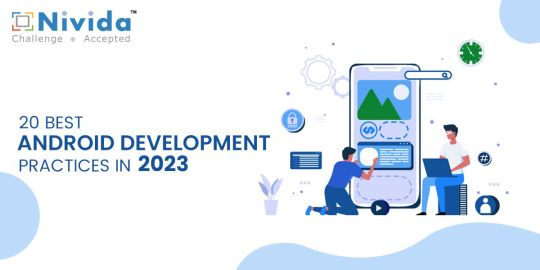
1. Define Clear Objectives:
Begin by defining clear objectives for your Android app development project. Identify the target audience, the app's purpose, and the specific goals you aim to achieve. This clarity will guide the development process and result in a more focused and effective application.
2. Embrace the Material Design Guidelines:
Google's Material Design guidelines provide a comprehensive set of principles and guidelines for designing visually appealing and intuitive Android applications. Adhering to these guidelines ensures consistency, enhances usability, and delivers an optimal user experience.
3. Optimize App Performance:
Performance optimization is crucial for user satisfaction. Focus on optimizing app loading times, minimizing network requests, and implementing efficient caching mechanisms. Profiling tools like Android Profiler can help identify performance bottlenecks and improve overall app responsiveness.
4. Follow a Modular Approach:
Adopting a modular approach allows for easier maintenance, scalability, and code reusability. Breaking down your app into smaller, manageable modules promotes faster development, reduces dependencies, and enhances collaboration among developers.
5. Implement Responsive UI Designs:
Designing a responsive user interface (UI) ensures that your app adapts seamlessly to various screen sizes and orientations. Utilize Android’s resources, such as ConstraintLayout, to create dynamic and adaptive UIs that provide a consistent experience across different devices.
6. Prioritize Security:
Android app security is of paramount importance. Employ secure coding practices, authenticate user inputs, encrypt sensitive data, and regularly update libraries and dependencies to protect your app against vulnerabilities and potential attacks.
7. Opt for Kotlin as the Preferred Language:
Kotlin has gained immense popularity among Android developers due to its conciseness, null safety, and enhanced interoperability with existing Java code. Embrace Kotlin as the primary programming language for your Android app development projects to leverage its modern features and developer-friendly syntax.
8. Conduct Thorough Testing:
Testing is crucial to ensure the reliability and stability of your Android applications. Employ a combination of unit testing, integration testing, and automated UI testing using frameworks like Espresso to catch bugs early and deliver a robust app to your users.
9. Optimize Battery Consumption:
Battery life is a significant concern for Android users. Optimize your app's battery consumption by minimizing background processes, reducing network requests, and implementing efficient power management techniques. Android's Battery Optimization APIs can help streamline power usage.
10. Implement Continuous Integration and Delivery (CI/CD):
Adopting CI/CD practices facilitates frequent code integration, automated testing, and seamless deployment. Tools like Jenkins and Bitrise enable developers to automate build processes, run tests, and deploy app updates efficiently, resulting in faster time-to-market and improved quality.
11. Leverage Cloud Technologies:
Integrating cloud technologies, such as cloud storage and backend services, can enhance your app's scalability, performance, and reliability. Services like Firebase offer powerful tools for authentication, database management, push notifications, and analytics.
12. Ensure Accessibility:
Make your Android app accessible to users with disabilities by adhering to accessibility guidelines. Provide alternative text for images, support screen readers, and use colour contrast appropriately to ensure inclusivity and a positive user experience for all users.
13. Optimize App Size:
Large app sizes can deter users from downloading and installing your application. Optimize your app's size by eliminating unused resources, compressing images, and utilizing Android App Bundles to deliver optimized APKs based on device configurations.
14. Implement Offline Support:
Provide offline capabilities in your app to ensure users can access essential features and content even when offline. Implement local caching, synchronize data in the background, and notify users of limited or no connectivity to deliver a seamless user experience.
15. Implement Analytics and Crash Reporting:
Integrate analytics and crash reporting tools, such as Google Analytics and Firebase Crashlytics, to gain insights into user behaviour, identify areas for improvement, and address crashes promptly. This data-driven approach helps in refining your app's performance and user engagement.
16. Keep Up with Android OS Updates:
Stay up to date with the latest Android OS updates, new APIs, and platform features. Regularly update your app to leverage new functionalities, enhance performance, and ensure compatibility with newer devices.
17. Provide Localized Versions:
Cater to a global audience by providing localized versions of your app. Translate your app's content, user interface, and notifications into different languages to expand your user base and increase user engagement.
18. Ensure App Store Optimization (ASO):
Optimize your app's visibility and discoverability in the Google Play Store by utilizing appropriate keywords, engaging app descriptions, compelling screenshots, and positive user reviews. ASO techniques can significantly impact your app's download and conversion rates.
19. Follow Privacy Regulations and Guidelines:
Adhere to privacy regulations, such as GDPR and CCPA, and ensure transparent data handling practices within your app. Obtain user consent for data collection, storage, and usage, and provide clear privacy policies to establish trust with your users.
20. Regularly Update and Maintain Your App:
Continuously monitor user feedback, track app performance metrics, and release regular updates to address bugs, introduce new features, and enhance user experience. Regular maintenance ensures that your app remains relevant, competitive, and secure.
Conclusion:
Adopting these 20 best Android development practices in 2023 will help Android app development companies in India, create exceptional applications. By focusing on objectives, embracing Material Design, optimizing performance, and following modern development approaches, your Android apps will stand out in the market, delight users, and achieve long-term success. Also by partnering with an Android App Development Company in India (Gujarat, Vadodara) you can leverage their expertise.
#Android App development company in India#Android App development agencies in India#Android App development companies in India#Android App development company in Gujarat#Android App development company in Vadodara#Android App development agencies in Vadodara#Android App development agencies in Gujarat#Android App development companies in Vadodara#Android App development companies in Gujarat
7 notes
·
View notes
Text
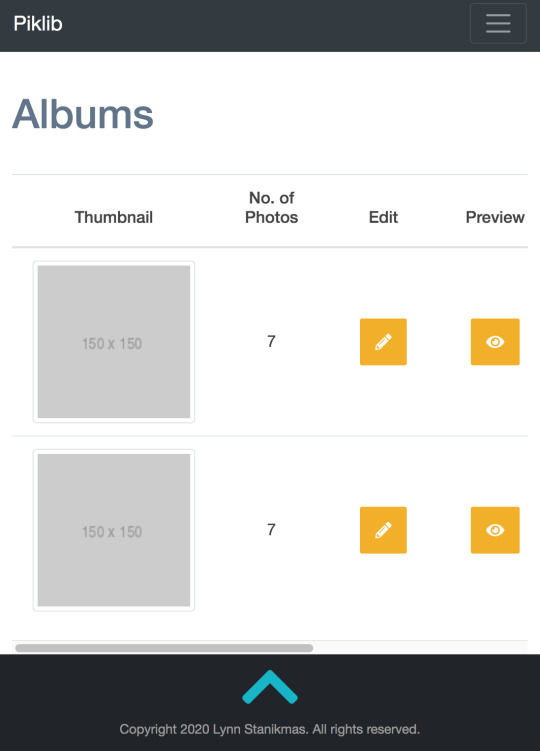

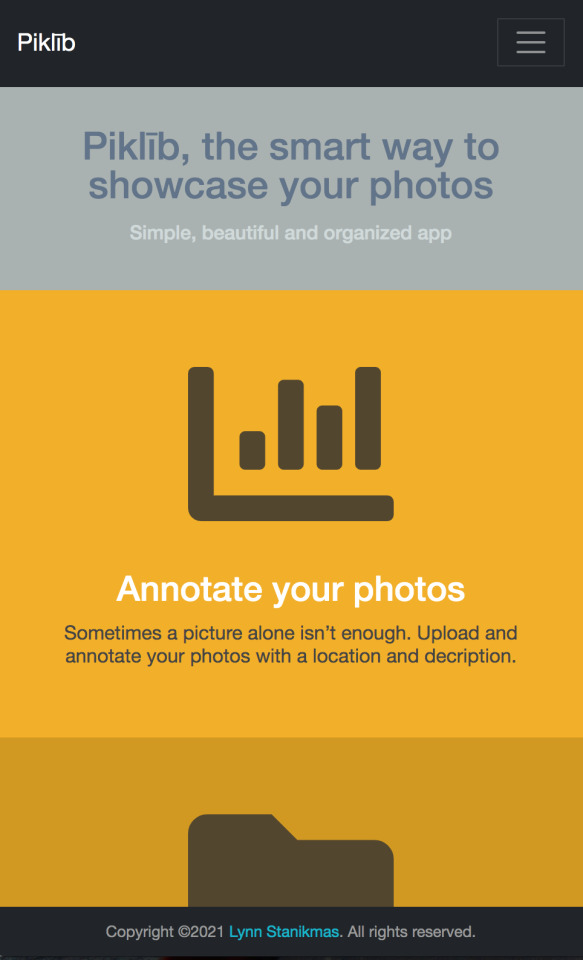

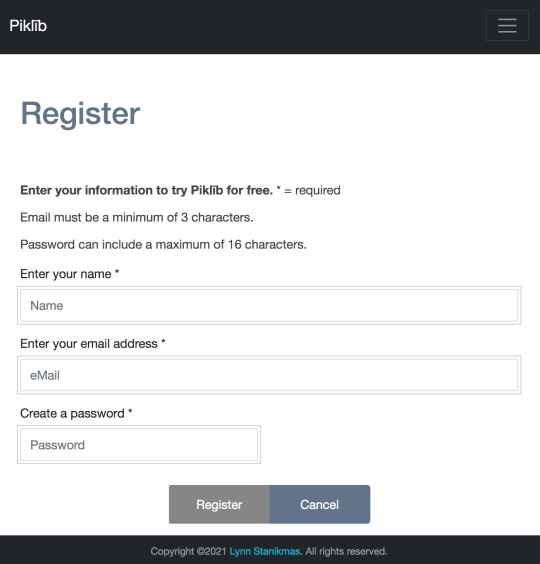
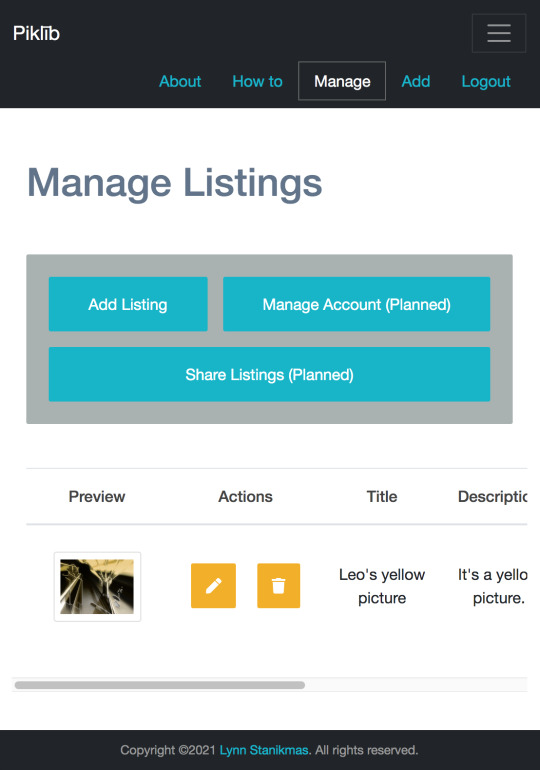
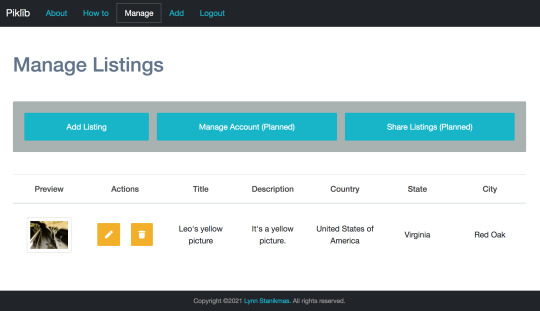

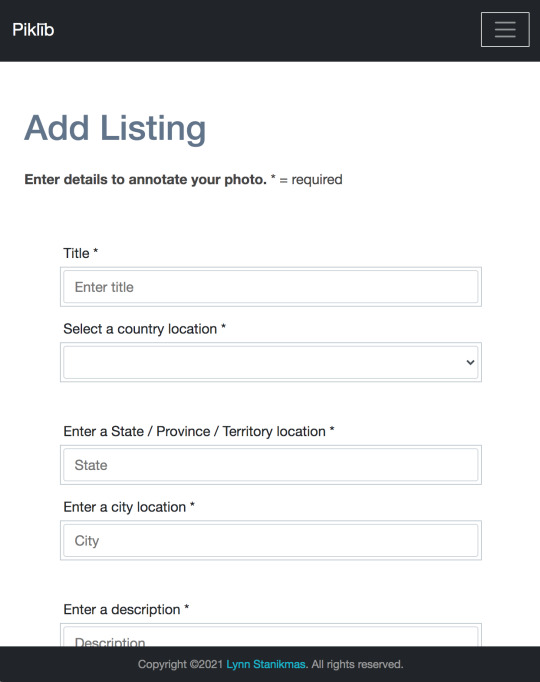
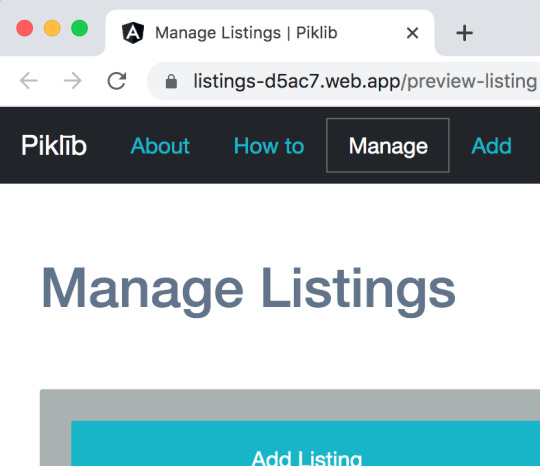
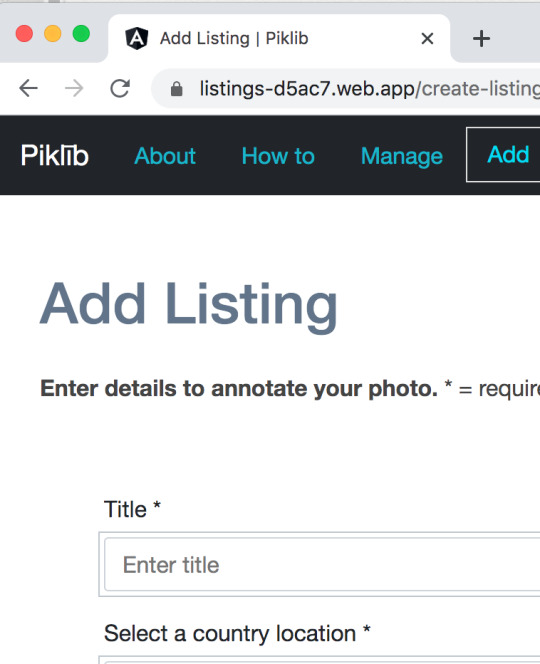
Angular SPA with user authentication and permission based access control via Google Cloud Firestore backend.
#angular#software#software development#developers#web development#web design#website development#web designers#forms#authentication#ui ux development services#ui#ui ux design#uidesign#ux#user interface#design#ux desgin#firebase#firestore#data#database#information technology#technology#seo#tech#backend#html5#frontend#coding
1 note
·
View note
Text
The Ultimate Guide to Developing a Multi-Service App Like Gojek

In today's digital-first world, convenience drives consumer behavior. The rise of multi-service platforms like Gojek has revolutionized the way people access everyday services—from booking a ride and ordering food to getting a massage or scheduling home cleaning. These apps simplify life by merging multiple services into a single mobile solution.
If you're an entrepreneur or business owner looking to develop a super app like Gojek, this guide will walk you through everything you need to know—from ideation and planning to features, technology, cost, and launching.
1. Understanding the Gojek Model
What is Gojek?
Gojek is an Indonesian-based multi-service app that started as a ride-hailing service and evolved into a digital giant offering over 20 on-demand services. It now serves millions of users across Southeast Asia, making it one of the most successful super apps in the world.
Why Is the Gojek Model Successful?
Diverse Services: Gojek bundles transport, delivery, logistics, and home services in one app.
User Convenience: One login for multiple services.
Loyalty Programs: Rewards and incentives for repeat users.
Scalability: Built to adapt and scale rapidly.
2. Market Research and Business Planning
Before writing a single line of code, you must understand the market and define your niche.
Key Steps:
Competitor Analysis: Study apps like Gojek, Grab, Careem, and Uber.
User Persona Development: Identify your target audience and their pain points.
Service Selection: Decide which services to offer at launch—e.g., taxi rides, food delivery, parcel delivery, or healthcare.
Monetization Model: Plan your revenue streams (commission-based, subscription, ads, etc.).
3. Essential Features of a Multi-Service App
A. User App Features
User Registration & Login
Multi-Service Dashboard
Real-Time Tracking
Secure Payments
Reviews & Ratings
Push Notifications
Loyalty & Referral Programs
B. Service Provider App Features
Service Registration
Availability Toggle
Request Management
Earnings Dashboard
Ratings & Feedback
C. Admin Panel Features
User & Provider Management
Commission Tracking
Service Management
Reports & Analytics
Promotions & Discounts Management
4. Choosing the Right Tech Stack
The technology behind your app will determine its performance, scalability, and user experience.
Backend
Programming Languages: Node.js, Python, or Java
Databases: MongoDB, MySQL, Firebase
Hosting: AWS, Google Cloud, Microsoft Azure
APIs: REST or GraphQL
Frontend
Mobile Platforms: Android (Kotlin/Java), iOS (Swift)
Cross-Platform: Flutter or React Native
Web Dashboard: Angular, React.js, or Vue.js
Other Technologies
Payment Gateways: Stripe, Razorpay, PayPal
Geolocation: Google Maps API
Push Notifications: Firebase Cloud Messaging (FCM)
Chat Functionality: Socket.IO or Firebase
5. Design and User Experience (UX)
Design is crucial in a super app where users interact with multiple services.
UX/UI Design Tips:
Intuitive Interface: Simplify navigation between services.
Consistent Aesthetics: Maintain color schemes and branding across all screens.
Microinteractions: Small animations or responses that enhance user satisfaction.
Accessibility: Consider voice commands and larger fonts for inclusivity.
6. Development Phases
A well-planned development cycle ensures timely delivery and quality output.
A. Discovery Phase
Finalize scope
Create wireframes and user flows
Define technology stack
B. MVP Development
Start with a Minimum Viable Product including essential features to test market response.
C. Full-Scale Development
Once the MVP is validated, build advanced features and integrations.
D. Testing
Conduct extensive testing:
Unit Testing
Integration Testing
User Acceptance Testing (UAT)
Performance Testing
7. Launching the App
Pre-Launch Checklist
App Store Optimization (ASO)
Marketing campaigns
Beta testing and feedback
Final round of bug fixes
Post-Launch
Monitor performance
User support
Continuous updates
Roll out new features based on feedback
8. Marketing Your Multi-Service App
Marketing is key to onboarding users and service providers.
Strategies:
Pre-Launch Hype: Use teasers, landing pages, and early access invites.
Influencer Collaborations: Partner with local influencers.
Referral Programs: Encourage user growth via rewards.
Local SEO: Optimize for city-based searches.
In-App Promotions: Offer discounts and bundle deals.
9. Legal and Compliance Considerations
Don't overlook legal matters when launching a multi-service platform.
Key Aspects:
Licensing: Depending on your country and the services offered.
Data Protection: Adhere to GDPR, HIPAA, or local data laws.
Contracts: Create terms of service for providers and users.
Taxation: Prepare for tax compliance across services.
10. Monetization Strategies
There are several ways to make money from your app.
Common Revenue Models:
Commission Per Transaction: Standard in ride-sharing and food delivery.
Subscription Plans: For users or service providers.
Ads: In-app promotions and sponsored listings.
Surge Pricing: Dynamic pricing based on demand.
Premium Features: Offer enhanced services at a cost.
11. Challenges and How to Overcome Them
A. Managing Multiple Services
Solution: Use microservices architecture to manage each feature/module independently.
B. Balancing Supply and Demand
Solution: Use AI to predict demand and onboard providers in advance.
C. User Retention
Solution: Gamify the app with loyalty points, badges, and regular updates.
D. Operational Costs
Solution: Optimize cloud resources, automate processes, and start with limited geography.
12. Scaling the App
Once you establish your base, consider expansion.
Tips:
Add New Services: Include healthcare, legal help, or finance.
Geographical Expansion: Move into new cities or countries.
Language Support: Add multi-lingual capabilities.
API Integrations: Partner with external platforms for payment, maps, or logistics.
13. Cost of Developing a Multi-Service App Like Gojek
Costs can vary based on complexity, features, region, and team size.
Estimated Breakdown:
MVP Development: $20,000 – $40,000
Full-Feature App: $50,000 – $150,000+
Monthly Maintenance: $2,000 – $10,000
Marketing Budget: $5,000 – $50,000 (initial phase)
Hiring an experienced team or opting for a white-label solution can help manage costs and time.
Conclusion
Building a multi-service app like Gojek is an ambitious but achievable project. With the right strategy, a well-defined feature set, and an expert development team, you can tap into the ever-growing on-demand economy. Begin by understanding your users, develop a scalable platform, market effectively, and continuously improve based on feedback. The super app revolution is just beginning—get ready to be a part of it.
Frequently Asked Questions (FAQs)
1. How long does it take to develop a Gojek-like app?
Depending on complexity and team size, it typically takes 4 to 8 months to build a fully functional version of a multi-service app.
2. Can I start with only a few services and expand later?
Absolutely. It's recommended to begin with 2–3 core services, test the market, and expand based on user demand and operational capability.
3. Is it better to build from scratch or use a white-label solution?
If you want custom features and long-term scalability, building from scratch is ideal. White-label solutions are faster and more affordable for quicker market entry.
4. How do I onboard service providers to my platform?
Create a simple registration process, offer initial incentives, and run targeted local campaigns to onboard and retain quality service providers.
5. What is the best monetization model for a super app?
The most successful models include commission-based earnings, subscription plans, and in-app advertising, depending on your services and user base.
#gojekcloneapp#cloneappdevelopmentcompany#ondemandcloneappdevelopmentcompany#ondemandappclone#multideliveryapp#ondemandserviceapp#handymanapp#ondemandserviceclones#appclone#fooddeliveryapp
0 notes
Text
Custom On-Demand Delivery App Development Services for Hyperlocal & Last-Mile Logistics

Launch your own delivery platform like Dunzo, Swiggy Genie, or Porter with Bluetris Technologies. We offer tailored On-Demand Delivery App Development services for groceries, medicines, food, courier, same-day logistics, and more. Our scalable and secure delivery apps help startups and enterprises streamline real-time tracking, order scheduling, payment processing, and customer communication — all through a seamless mobile and web interface. Key Features:
✅ Real-Time Order & Delivery Tracking
✅ Multi-Role Access: User, Driver, Admin
✅ Smart Order Scheduling & Route Optimization
✅ Digital Payments: UPI, Wallets, Cards
✅ Push Notifications, Ratings & Promo Management
✅ Cross-Platform Support (Android/iOS/Web) Built using Flutter, Node.js, Firebase & AWS for speed, security, and user experience. 📞 Let’s build your delivery app today! 🌐 www.bluetris.com | 📱 +91-90240 49583
#mobile app development company#mobile app development#mobile app development cost#delivery app development#delivery app development cost#delivery app development company#on-demand app development
0 notes
Text
What to Expect from a Moroccan Mobile App Partner
In today’s digital-first landscape, partnering with a reliable mobile app development company is crucial to building a product that scales. If you're looking for a blend of innovation, affordability, and technical excellence, mobile app development company in Morocco has emerged as a competitive option for businesses worldwide. From Casablanca to Marrakesh, Morocco offers a rich ecosystem of talented developers and forward-thinking companies ready to bring your vision to life.

This guide dives deep into what you should expect when partnering with a Moroccan mobile app development firm and why companies like Five Programmers are trusted names in this space.
Why Choose a Mobile App Partner in Morocco?
Before we get into the process, let’s understand why Morocco is quickly becoming a top destination for outsourcing mobile app projects.
✔ Affordable Quality
Development costs in Morocco are much lower than in North America or Western Europe, but the quality of service matches global standards. You get value without compromise.
✔ Bilingual Expertise
Most Moroccan developers are fluent in Arabic, French, and English, enabling easy communication with clients from the MENA region, Europe, and beyond.
✔ Global Tech Exposure
Thanks to international collaboration and remote work culture, Moroccan teams have significant exposure to global tech trends and agile development practices.
✔ Local Innovation
Supported by initiatives like "Digital Morocco 2025," the country encourages tech entrepreneurship and digital transformation.
What to Expect When Working with a Moroccan App Development Company
Partnering with a mobile app development company in Morocco involves a transparent and streamlined process designed to deliver top-tier results. Here’s what you can expect:
1. Idea Discovery & Consultation
The process typically begins with a discovery call. Your Moroccan partner will want to understand:
Your business goals
Target audience
Technical requirements
Expected outcomes
Companies like Five Programmers invest time in learning your business to recommend the best technical approach.
2. Project Roadmap & Documentation
Once your vision is clear, the development partner provides:
A detailed scope of work
Timelines and milestone delivery plans
Budget estimates
Platform recommendations (Android, iOS, or both)
This ensures everyone is aligned before development starts.
3. UI/UX Design That Works
Expect creative, user-centric designs. Moroccan designers focus on:
Simple and intuitive interfaces
Localization support (Arabic/French/English)
Engaging visual elements
4. Agile App Development
Development is carried out in sprints, with weekly check-ins, demos, and progress tracking. You'll be looped into the process for feedback.
Popular technologies used include:
Flutter and React Native for cross-platform apps
Swift and Kotlin for native apps
Node.js, Firebase, and MongoDB for backend support
5. Rigorous Testing
No app goes live without being thoroughly tested on real devices and under various conditions. QA teams handle:
Usability testing
Security audits
Performance testing
6. Launch & Post-Launch Support
After publishing the app, you can expect post-launch support that includes:
Bug fixes
App performance monitoring
Feature updates based on user feedback
Companies like Five Programmers go the extra mile by offering ongoing support packages and consultations.
What Makes Moroccan App Partners Unique?
✅ Flexibility in Engagement Models
Whether you need a fixed-price project or prefer to hire dedicated developers monthly, Moroccan companies offer flexible contracts.
✅ Strong Design Aesthetics
Many Moroccan firms blend Western design principles with regional cultural elements for a unique and effective UI/UX.
✅ Collaborative Spirit
Expect proactive communication, frequent updates, and a willingness to adapt. Moroccan teams are known for their client-first mindset.
Real Use Cases from Morocco
🚀 E-Commerce App in Casablanca
A local retail brand partnered with a Moroccan firm to build a mobile shopping app. The app featured bilingual interfaces, cart reminders, and secure payment integration.
🎓 Learning Platform in Marrakesh
A nonprofit built an educational app for remote students with video content, test modules, and multilingual support.
✉️ On-Demand Delivery App in Agadir
With real-time tracking, chat support, and route optimization, the app transformed local delivery services.
Frequently Asked Questions (FAQs)
Q1: Can I get a prototype before full development?
Yes. Most Moroccan firms, including Five Programmers, offer wireframes and clickable prototypes before coding begins.
Q2: Are Moroccan developers comfortable with global compliance standards?
Absolutely. They are well-versed in GDPR, HIPAA, and other data privacy protocols.
Q3: Will I have direct access to the development team?
Yes. You’ll typically have access to a project manager and direct communication channels via email, chat, or video calls.
Q4: Do they provide app store deployment support?
Yes. From app submission to publishing and ASO (App Store Optimization), everything is handled.
Choosing the Right Moroccan App Development Partner
When selecting your partner, consider:
Portfolio: Look for diverse, industry-specific work.
Client Reviews: Testimonials from global clients speak volumes.
Post-Launch Support: Ensure there’s a structured support plan.
Tech Expertise: Confirm they work with the platforms and languages you need.
Final Thoughts
Working with a Moroccan mobile app development company gives you access to international-grade solutions at a fraction of the cost. The combination of technical talent, cultural awareness, and project transparency makes Morocco a top choice for 2025 and beyond.
Firms like Five Programmers are trusted not just for their skill, but for their ability to deeply understand business goals and deliver custom-built apps that scale. Whether you're a startup or an enterprise, having the right Moroccan partner can be your biggest tech advantage.
Ready to Get Started?
👉 Get a Quote or schedule a free discovery session today.
Transform your mobile idea into a digital success – powered by Moroccan innovation and global delivery.
#mobile app development company in Morocco#mobile apps in Morocco#app development companies in Morocco#technology#tech
1 note
·
View note
Text
The Future of Cross-Platform App Development
In recent years, cross-platform app development has gained significant traction among businesses aiming to reach wider audiences while optimizing development costs.
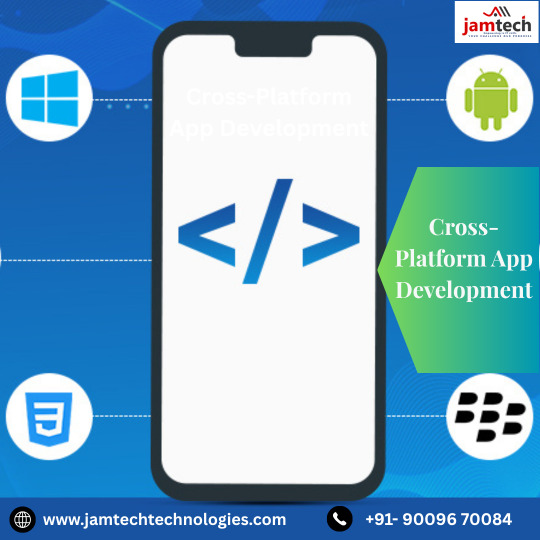
With rapid technological advancements, the future of cross-platform app development is set to transform how developers build, deploy, and maintain mobile and web applications. This article explores the evolving landscape, key trends, and the long-term benefits of adopting cross-platform development strategies.
Understanding Cross-Platform App Development
Cross-platform app development refers to the process of building applications that can run on multiple operating systems (primarily Android and iOS) using a single codebase. This approach contrasts with native app development, where separate codebases are required for each platform.
Popular cross-platform frameworks include Flutter, React Native, Xamarin, and Ionic. These tools enable developers to write one set of code and deploy it across multiple platforms, improving efficiency and reducing time-to-market.
Key Trends Shaping the Future
Improved Framework Capabilities Tools like Flutter and React Native continue to evolve, offering near-native performance, extensive UI capabilities, and support for web and desktop applications. This convergence of technologies is making cross-platform development more versatile and powerful.
Integration of AI and Machine Learning Integrating AI-powered features into cross-platform apps is becoming more accessible. Developers can now implement functionalities such as voice recognition, predictive text, and recommendation engines across platforms using common APIs and frameworks.
Increased Adoption of Low-Code/No-Code Platforms Businesses are leveraging low-code tools for mobile app development that support cross-platform capabilities. These platforms empower non-developers to participate in app creation, further accelerating digital transformation.
Focus on Performance Optimization Historically, cross-platform apps were criticized for their limited performance compared to native apps. However, new architectural improvements, such as Flutter’s Dart-based rendering and React Native’s new Fabric architecture, are closing this gap.
Cloud Integration and Backend-as-a-Service (BaaS) Cross-platform developers are increasingly utilizing cloud services and BaaS solutions like Firebase, AWS Amplify, and Azure Mobile Apps to simplify backend management and enhance scalability across platforms.
Benefits of Cross-Platform App Development
Faster Development Time: A shared codebase accelerates development cycles and reduces duplication of effort.
Cost Efficiency: Businesses save on development and maintenance costs by hiring a single team for all platforms.
Wider Reach: Applications can simultaneously target users on iOS, Android, web, and desktop platforms.
Unified User Experience: Cross-platform frameworks support consistent UI design and functionality across devices.
Challenges to Consider
Despite its advantages, cross-platform mobile app development faces challenges such as:
Limited access to some native APIs and features.
Potential performance trade-offs in highly complex or graphics-intensive applications.
Framework learning curves and dependency on community support.
Conclusion
The future of cross-platform app development looks promising, with continuous innovation in frameworks, tools, and practices. Businesses and developers should consider cross-platform strategies to improve development efficiency, reduce costs, and reach broader audiences. As cross-platform development frameworks become more robust, the line between native and cross-platform apps will continue to blur, making this approach increasingly viable for all types of projects.
#CrossPlatformDevelopment#AppDevelopment#MobileAppDevelopment#FlutterDevelopment#ReactNative#HybridAppDevelopment#SoftwareDevelopment#TechInnovation#FutureOfApps#DevCommunity
0 notes
Text
Mobile App Development Company in Chicago: Creating Digital Masterpieces
Mobile application development companies in Chicago, In today’s fast-paced digital world, mobile applications have become the cornerstone of successful businesses. Whether it’s about engaging customers, streamlining operations, or offering personalized experiences, the power of a well-built mobile app is undeniable. In a city known for its architectural brilliance and innovative spirit, one company stands out in the tech scene: Avigma Tech LLC, a premier mobile app development company in Chicago dedicated to creating digital masterpieces that push boundaries and elevate brands.
The Rise of Mobile Innovation in Chicago
Chicago isn’t just known for deep-dish pizza and towering skyscrapers—it’s a growing hub for technology and innovation. Businesses across the Windy City are leveraging mobile technology to reach new audiences, improve efficiency, and stay ahead of the curve. As the demand for intuitive, feature-rich apps grows, the need for a reliable and creative mobile app development partner becomes more critical than ever, mobile application development company in Chicago.
That’s where Avigma Tech LLC comes in.
About Avigma Tech LLC
Avigma Tech LLC is more than a development firm—it’s a digital craftsmanship studio. With a mission to turn bold ideas into powerful apps, Avigma blends technical excellence with artistic innovation. Their team of developers, designers, project managers, and strategists work collaboratively to build apps that aren’t just functional, but genuinely memorable.
Whether it’s a sleek mobile wallet, an AI-powered health tracker, a real-time event booking platform, or a fully integrated e-commerce app, Avigma delivers solutions that are robust, scalable, and tailored to meet the unique goals of each client.
What Makes Avigma Tech a Leader in Chicago?
Here’s why Avigma Tech LLC is trusted by startups, mid-size companies, and enterprise clients across industries:
1. User-Centric Design Philosophy
At the heart of every app Avigma creates is the user. Their design-first approach ensures every interaction feels natural, intuitive, and engaging. They prioritize clean UI/UX that enhances usability and boosts retention—whether it's a first-time user or a returning customer, mobile app development company in Chicago.
2. Cutting-Edge Technologies
Avigma isn’t afraid to dive into the latest tech. They specialize in both native and cross-platform development using frameworks like React Native, Flutter, Swift, Kotlin, and more. Their backend expertise includes .NET, Node.js, Firebase, Supabase, and cloud-native services like AWS and Azure.
3. End-to-End Development
From concept to deployment, Avigma handles the entire mobile app development lifecycle. This includes wireframing, prototyping, development, testing, deployment, and maintenance. Clients benefit from a single point of contact, streamlined communication, and fast turnaround times, mobile app development companies in Chicago.
4. Cross-Industry Experience
Avigma has built apps across a wide range of sectors including:
Healthcare & Mental Wellness
E-commerce & Retail
Fintech & Banking
Education & eLearning
Real Estate & Smart Property Management
Lifestyle & Entertainment
Their diverse portfolio allows them to bring industry-specific insights into each project, ensuring the app aligns with market trends and user expectations.
5. Security & Compliance
In today’s digital landscape, app security is non-negotiable. Avigma follows best practices in data protection, GDPR compliance, secure API development, and user authentication. Their apps are engineered to be safe, reliable, and resilient.
Building for the Future
Avigma doesn’t just build apps for today—they future-proof them. By incorporating AI, machine learning, blockchain, real-time analytics, and cloud integration, they ensure every app is ready to grow with your business. Their ongoing support and maintenance services keep your app updated with the latest technologies and market needs.
Collaboration That Counts
What sets Avigma apart from other mobile app development companies in Chicago is their dedication to partnership. They don’t just build what you ask for—they work with you to refine your vision, advise on strategy, and deliver a product that exceeds expectations, website development company in Chicago.
Whether you're a visionary entrepreneur, an enterprise CTO, or a growing startup, Avigma Tech becomes a true extension of your team.
Conclusion: Turning Ideas into Digital Masterpieces
When it comes to mobile app development in Chicago, Avigma Tech LLC is in a league of its own. By combining technical brilliance, creative innovation, and business strategy, they craft apps that aren’t just tools—but experiences. If you’re looking to make an impact in the digital world, Avigma is your trusted partner to bring your vision to life.
0 notes